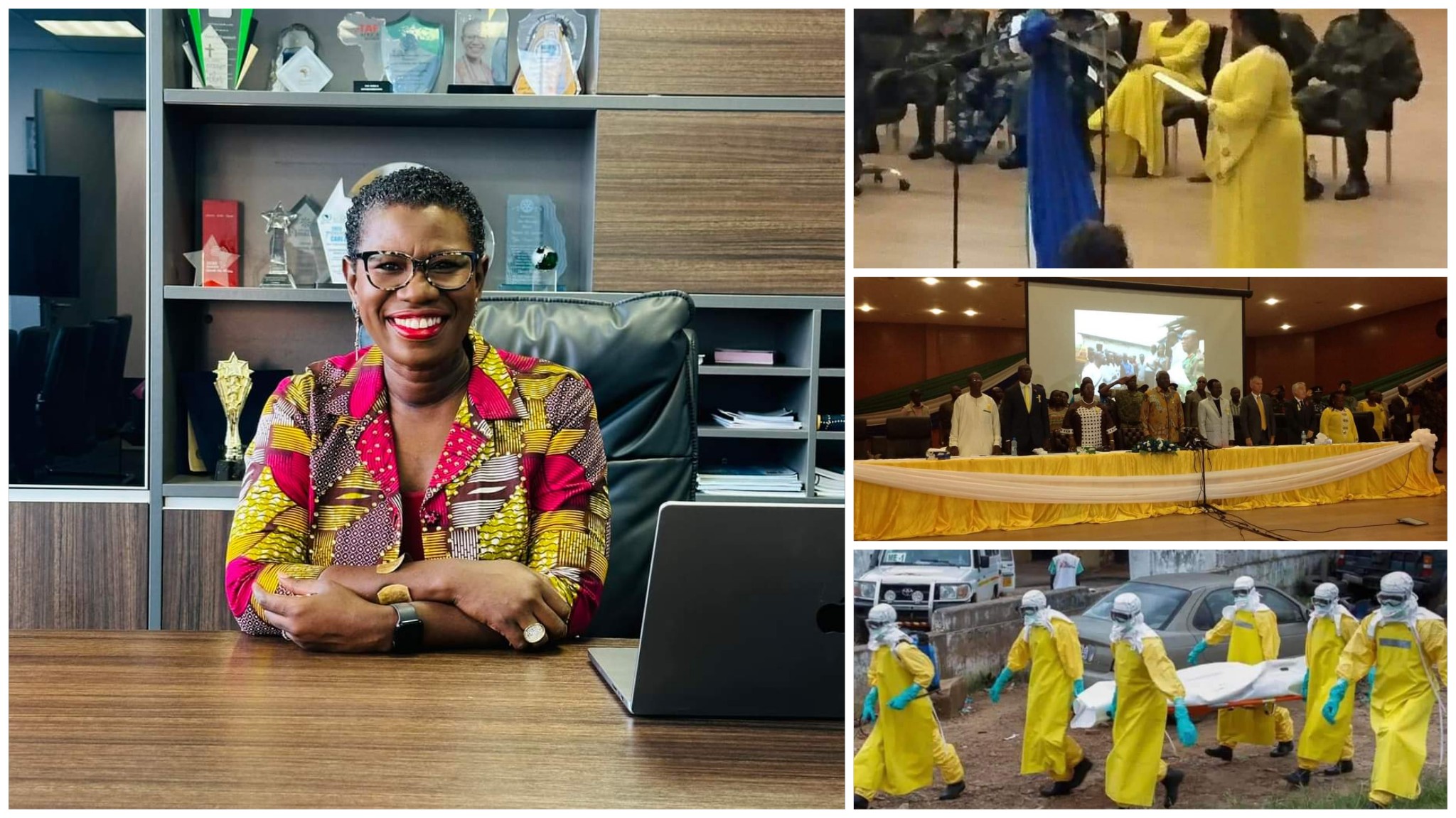
The Director General of the National Social Security and Insurance Trust, Mohamed Fuaad Daboh, has been awarded the prestigious award as the Most Outstanding Excellence in Social Security Administration by the Business Executive.
The event, which took place at the 3rd edition of the African Public Service Optimum Awards in Accra, Ghana, on Wednesday, 5th June 2024, was attended by a galaxy of high-profile personalities including ambassadors and senior Ghanaian government officials.
Mr Daboh was also honourably tasked with the delivery of a paper on the topic, TRANSFORMING AFRICA THROUGH PUBLIC SERVICE PROFESSIONALISM AND EXCELLENCE.
In his acceptance statement, the NASSIT Director General expressed his delight for the award which, he stated, was a testament to his hard work and commitment towards improving the lives of the people of Sierra Leone through the NASSIT social insurance scheme. He paid tribute to the Board, Management and staff of the Trust for their support throughout the years.
“This award does not belong to me only; it belongs to the President, His Excellency Rtd, Brigadier General Julius Maada Bio, and the people of Sierra Leone”, Mr Daboh emphasised.
The NASSIT boss went on to thank the organisers, The Business Executive, for their kind consideration, saying the award could not have come at a better time like this.
Delivering his paper, Mr Daboh spoke about the critical role of the public service, saying, “In this rapidly evolving world, Africa stands at a critical juncture where the promise of a prosperous future hinges on our ability to build public institutions that are efficient, effective and deeply rooted in the principles of integrity, accountability, and innovation”.
He went on to state that Africa had faced, and continues to face, enormous challenges ranging from institutionalised corruption, poverty, inequality, inefficiency in resource management, capacity challenges, strong political dependence, and inadequate infrastructure.
However, Mr Daboh went on, Africa still has boundless potential and that public service transformation would be central to unlocking that potential with its rich resources, youthful population and innovative spirit.
Amidst thunderous applause from the over 250 participants, delegates and Government officials, the Director General went on to highlight the key pillars for unlocking Africa’s transformation including, but not limited to, Strengthening legal and institutional framework; Fostering capacity building and training; Encouraging civic participation and transparency; Promoting ethical standards and accountability; Leveraging technology through e-government initiatives; and Regional/International cooperation.
“By focusing on these pillars, we can create a public service that will not only meet the demands of the present but also anticipate future needs”, Mr Daboh asserted, adding “The professionalism and excellence of our public servants are crucial to our efforts to achieve the aspirations of our continent”.
He went on to state that public service professionalism should not be a mere aspiration but a necessity that encompasses ethical conduct, accountability, competence, and steadfast commitment to public welfare, adding that when public servants uphold these principles, they lay the foundation for trust, good governance and effective service delivery.
Speaking on one of the pillars, the NASSIT Director General noted that civic participation empowers citizens by giving them a voice in the decision-making processes that affect their lives while ensuring that public policies and services reflect the needs and aspirations of the people. Transparency, he went on, reduces opportunities for corruption and ensures that public officials act in the best interests of the public. He noted that when public servants engage citizens and incorporate their feedback, services become more efficient, effective, and tailored to community needs.
Mr Daboh told his audience that enacting and enforcing freedom of information laws could guarantee citizens’ right to access government information while utilising technology and social media could broaden the reach of civic engagement efforts. E-governance platforms, mobile applications, and social media channels can provide citizens with real-time information and opportunities to participate in governance, he noted.
Concluding, Mr Daboh stated, “Africa is at a crossroads of development and our opportunities are boundless. Our youthful population is vibrant and our natural resources are abundant. These are catalysts for growth and development. What we require is the right mindset, visibility and a stronger regional integration that will foster this much-needed development”.
On behalf of the President and people of Sierra Leone, the NASSIT strong man pledged Sierra Leone’s commitment to the drive for a professional and excellent public service
NASSIT, We Care!



